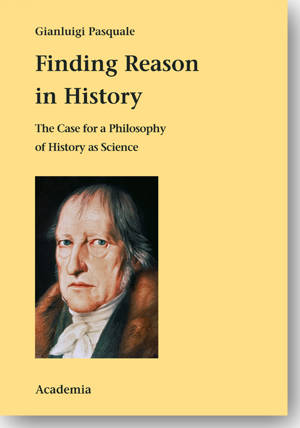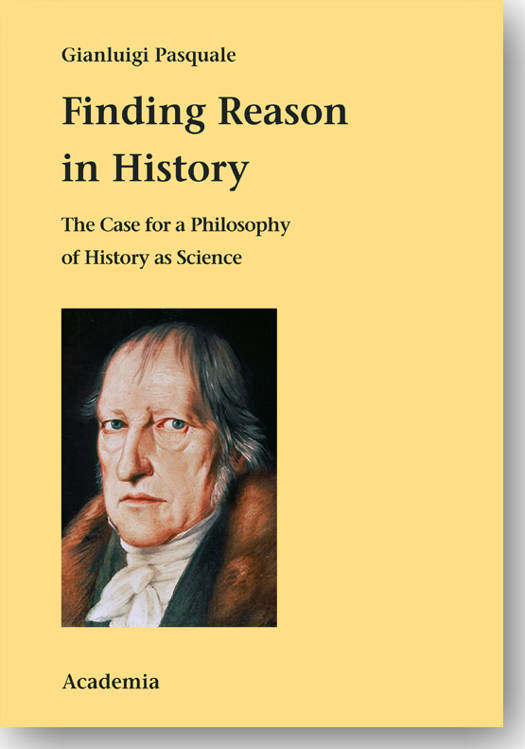
- Retrait gratuit dans votre magasin Club
- 7.000.000 titres dans notre catalogue
- Payer en toute sécurité
- Toujours un magasin près de chez vous
- Retrait gratuit dans votre magasin Club
- 7.000.0000 titres dans notre catalogue
- Payer en toute sécurité
- Toujours un magasin près de chez vous
32,95 €
+ 65 points
Description
History follows a tortuous, at times unfathomable path. Yet there are those who discern a sense, a unifying drive, even, in that intricate tangle of events. They believe a powerful rationality acts within history, which needs to be understood through a seamless conceptual structure. Thus, a science of history becomes possible. Among those who hold this view, some see an immanent principle in the development of events, others see therein God's transcendence. This essay opens up with a radical question: is it possible to find in history the reason that will allow me to be saved? The author's argumentation hinges on a comparative analysis of Georg Wilhelm Friedrich Hegel, who theorized the Absolute as a dialectical, historical process, and one of his great contemporary interpreters, Wolfhart Pannenberg. According both to Hegel's dialectic and Pannenberg's Christological thought, history does not unfold from the past toward the future, but runs from the future toward the past, so that truth in history may only be reconstructed retrospectively, in the totality of what occurs.
The study is divided into three main chapters, preceded by an ample introduction and followed by a set of conclusions. In the introduction, Pasquale outlines the concept of history in Hegel and Pannenberg, emphasizing common traits and dwelling in particular upon certain figures of Hegel's system - such as 'devotion' and 'unhappy consciousness' - which have been reinterpreted theologically by Pannenberg. The first chapter focuses on the historical-eschatological dialectic of the Christian event, giving a detailed presentation of Pannenberg's position, particularly of its Christological implications. The second chapter analyzes Pannenberg's theme of the 'anticipation of the end', examining it in relation to the logical structure of Hegel's dialectic. The third chapter deals with the delicate relationship between the contingency of historical events - which appear as fragmented, incomplete reality - and the definitive sense given them by the perspective of totality, as expected at the end of the historical process. The conclusions offer interesting applications of the dialectics of anticipation and back-projection of the end of history in ontology and metaphysics, with particular emphasis on the relation between becoming and essence and between finiteness and transcendence.
'Throughout his informative book, P. shows how, paradoxically, Pannenberg sets out to use Hegel's philosophy against Hegel, in order to gain a deeper understanding of some fundamental elements of a 'classic' Christian view' Theological Studies 74 (2)
The study is divided into three main chapters, preceded by an ample introduction and followed by a set of conclusions. In the introduction, Pasquale outlines the concept of history in Hegel and Pannenberg, emphasizing common traits and dwelling in particular upon certain figures of Hegel's system - such as 'devotion' and 'unhappy consciousness' - which have been reinterpreted theologically by Pannenberg. The first chapter focuses on the historical-eschatological dialectic of the Christian event, giving a detailed presentation of Pannenberg's position, particularly of its Christological implications. The second chapter analyzes Pannenberg's theme of the 'anticipation of the end', examining it in relation to the logical structure of Hegel's dialectic. The third chapter deals with the delicate relationship between the contingency of historical events - which appear as fragmented, incomplete reality - and the definitive sense given them by the perspective of totality, as expected at the end of the historical process. The conclusions offer interesting applications of the dialectics of anticipation and back-projection of the end of history in ontology and metaphysics, with particular emphasis on the relation between becoming and essence and between finiteness and transcendence.
'Throughout his informative book, P. shows how, paradoxically, Pannenberg sets out to use Hegel's philosophy against Hegel, in order to gain a deeper understanding of some fundamental elements of a 'classic' Christian view' Theological Studies 74 (2)
Spécifications
Parties prenantes
- Auteur(s) :
- Traducteur(s):
- Editeur:
Contenu
- Nombre de pages :
- 298
- Langue:
- Anglais
- Collection :
- Tome:
- n° 46
Caractéristiques
- EAN:
- 9783896656193
- Format:
- Livre relié
- Dimensions :
- 160 mm x 215 mm
- Poids :
- 542 g

Les avis
Nous publions uniquement les avis qui respectent les conditions requises. Consultez nos conditions pour les avis.






